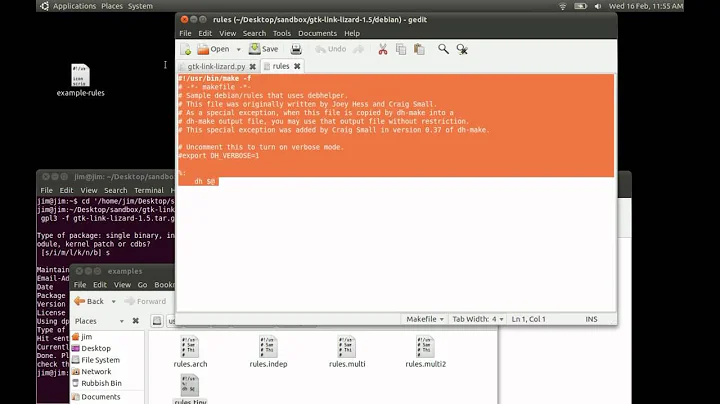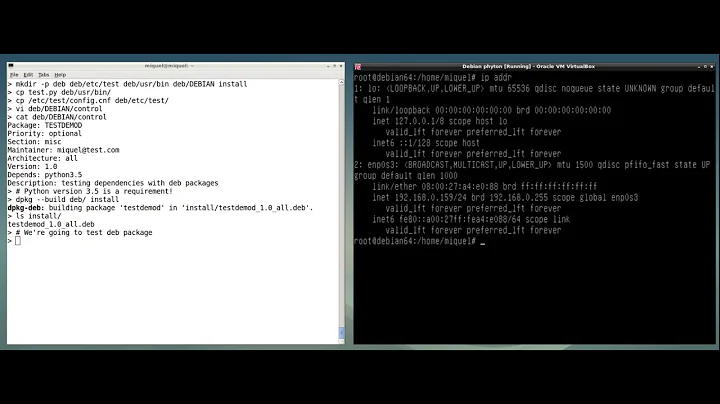how do you create a "signed" deb package
Solution 1
Package signing on Ubuntu/Debian systems is rather messy. In theory, signing a deb package makes it possible for the person receiving your package to verify that the package was not modified after you signed it. In reality, signature verification is terribly difficult to setup and is disabled by default. Unless the user does a bunch of setup locally, they won't be verifying the signature when the package is installed.
In order to sign a package, you can use either: debsigs or dpkg-sig. The signatures are not compatible with one another, so you'll need to make sure the user is using the proper tool on the receiving side for verifying signatures.
dpkg-sig is easier to use for both you and the user, but debsigs is the tool with built-in support (which is disabled by default) on Ubuntu and Debian.
I wrote a blog post containing all the technical details of signing and verifying source packages (.dsc files), binary packages (.deb), and APT package repositories themselves here: http://blog.packagecloud.io/eng/2014/10/28/howto-gpg-sign-verify-deb-packages-apt-repositories/
Solution 2
Package signing on Debian/Ubuntu is commonly done via .changes files. When building a package you tend to end up with a .changes file, listing the results of the build (source and/or binary packages) and their checksums, when you sign packages this is normally the file you sign (thus allowing verification of the package integrity by way of its checksum).
The simplest way to sign a .changes file is to use debsign
debsign hello_1.0_amd64.changes
This occurs automatically if you have a primary key in you gnupg keychain, and you run dpkg-buildpackage or debuild without the -us and -uc switches.
Related videos on Youtube
Kanesha A
Updated on September 18, 2022Comments
-
Kanesha A over 1 year
I'm trying to create a query using the SQL SELECT statement but I keep getting a error with my code This is my code:
SELECT * FROM tblRegistration WHERE (tblRegistration.InstanceID IN ( SELECT InstanceID FROM tblRegistration SELECT tblCourse.InstanceID, tblCourse.HoursPerWeek FROM tblCourse WHERE (((tblCourse.HoursPerWeek)=40));-
 Pilot6 over 8 years@SampoSarrala This is not a duplicate at all.
Pilot6 over 8 years@SampoSarrala This is not a duplicate at all. -
 June7 about 3 yearsSuggest you use query designer to build query that references query objects then switch to SQLView and copy/paste SQL statements to replace object references. Have to enclose the subquery statement in parentheses. Your nested queries make no sense. Edit your question to provide sample data as text tables.
June7 about 3 yearsSuggest you use query designer to build query that references query objects then switch to SQLView and copy/paste SQL statements to replace object references. Have to enclose the subquery statement in parentheses. Your nested queries make no sense. Edit your question to provide sample data as text tables.
-
-
arand over 8 yearsIt seems like the fact that binary .deb packages can be (and are, as far as the official packaging chain for Debian/Ubuntu) included in .changes files as well. Is omitted in this answer and the linked blog post.
-
matigo about 3 yearsThis looks like a bracketing issue. There’s a missing bracket here ⇢
FROM tblRegistration SELECTand too many here ⇢WHERE (((tblCourse.HoursPerWeek)🤐 -
 KBNanda over 2 yearsThe link leads to nowhere!
KBNanda over 2 yearsThe link leads to nowhere!






